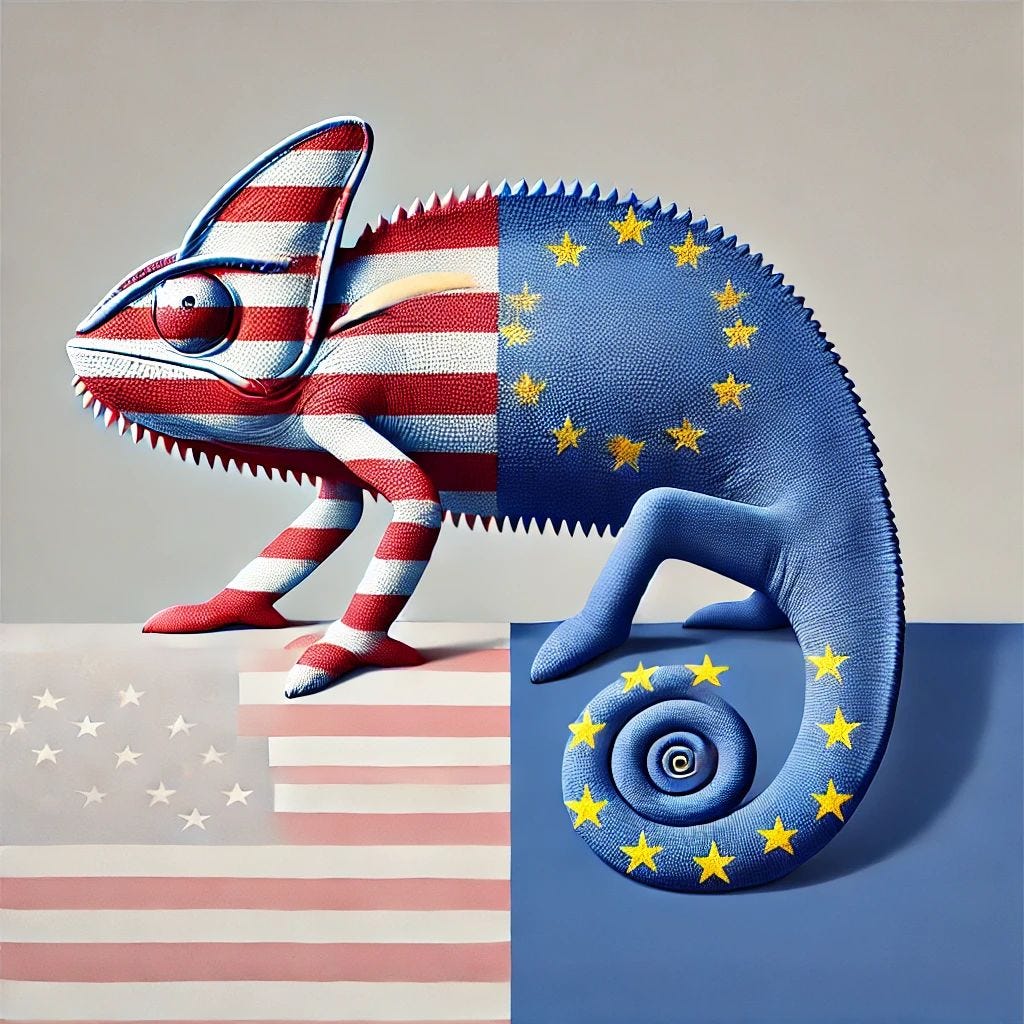
It is difficult to determine where Donald Trump stands politically. Yet, what cannot be denied is that a lot of his followers self-identify as conservative. That means, of course, that Trump must somehow address a conservative agenda.
At least for me, that was always puzzling. How can Trump combine the needs of a strong Christian community with his economic policies that have not confined neoliberal shareholder capitalism at all? An answer to that requires the following insight: conservatism is indexical.
Conservatism is indexical
What does this mean? “Indexical” is a term from linguistics and the philosophy of language. It means that a term is context-sensitive in that it varies from occasion to occasion. While “liberalism” or “socialism” are mainly static and defined by explicit philosophical works, such as those of Mill or Marx, “conservatism” roughly refers to whatever the traditional values of a place and time are.
That means, for instance, that while what Marx said is the same in the US or Germany, conservatism is not, due to different traditional values in both countries. Among those diverging traditional values, religion stands out. Branches of US Christianity have been associated with forms of predatory capitalism and other ideals, such as love for guns.
Varieties of Christianity: The US and Europe
Some readers might find the connection between Christianity and predatory capitalism less absurd than I do. They might, for instance, refer to Max Weber’s unfortunately famous theory of how capitalism supposedly emerged from Calvinism. Yet, we can still observe that this branch of Christian faith seems very much confined to the States—and did not manifest, for instance, in Switzerland, where Calvinism originated.
For most Christians, this pro-capitalist branch of Christianity must seem utterly bizarre. They would rather identify Christianity with brotherly love, communal sharing, and a rejection of all forms of violence; and not with competition, self-interest, the profit motive, or making every aspect of life susceptible to “markets”.
While I am not a religious person, the following Bible quotes stayed with me for a long time: “Again I tell you, it is easier for a camel to go through the eye of a needle than for someone who is rich to enter the kingdom of God.” Likewise, “no servant can serve two masters. Either you will hate the one and love the other, or you will be devoted to the one and despise the other. You cannot serve both God and money.” Or finally, “sell your possessions and give to the poor.” And it should not come as a surprise that greed was considered a cardinal sin until the rise of capitalism. Accordingly, it always seemed absurd to me that a Christian community euphoric about capitalism could emerge.
And indeed, if you look at conservative movements in Europe, what they had in common for a long time after World War II was a rejection of capitalism. Instead, they sought to build and partially succeeded in creating a caring welfare economy based on social Christian moral theory, both Catholic and Protestant—which happened in tandem with European social democracy and its ideals. And although European conservative movements have also been hijacked by neoliberalism from the 1970s on, you would be hard-pressed to find, for instance, a conservative German politician—or even a liberal for that—who would like to create a US-style economy in Germany.
Why we will not see Trumpism in Europe
Of course, I would rather not say here that Trumpism emerged from a unique branch of American Christianity. To the contrary, to neutral eyes from Europe, Trump seems like a deeply unchristian Berlusconi-style playboy who lives in deep opposition to Christian values—Trump is basically the embodiment of the seven deadly sins on a pure personal level, independent of his politics. Yet, Trump was in the first place able to win a significant share of a conservative religious vote due to the capitalist spirituality of parts of American Christianity—wherever that ideology comes from, I do not know.
These branches of American Christianity allow Trump to commit to neoliberal capitalism, while European conservatives, or right-wing populists, from France to Italy to Germany rather want to support working-class policies and strengthen the welfare state. Due to the indexical nature of conservatism, we see a massive difference between Trumpism and European right-wing movements. And that is why Trumpism will likely be confined to the United States.
If you enjoyed this article, please consider sharing it with your friends or on social media. I am also always happy to receive a tip to further support my research. Your support would be greatly appreciated. Thank you!
I am currently in the process of (probably) migrating from Substack to Medium. During this period, I publish my articles on both platforms.
If you are interested in my research, please consider visiting alexjeuk.com.
© 2024 Alexander Jeuk for the text. For the image see the caption.



